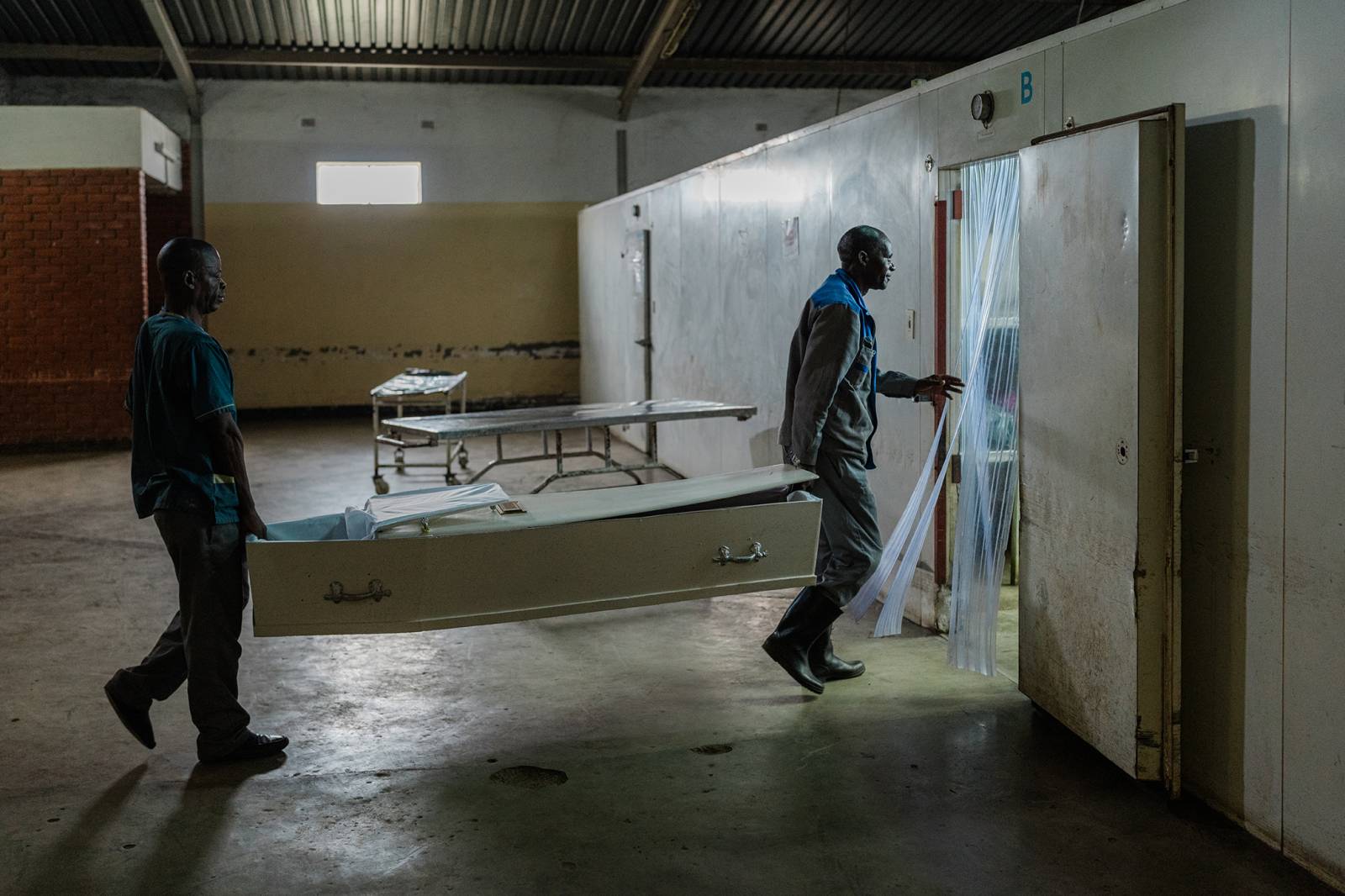Modernizing Medicolegal Death Investigations to Protect Public Health
In many countries, unnatural and unexplained deaths are not adequately investigated, leaving public health officials without critical data needed to design effective interventions. While natural deaths are often certified by attending physicians, deaths resulting from unnatural causes require thorough investigation. The medicolegal death investigation (MLDI) system is responsible for determining the cause and manner of such deaths—whether they result from violence, accidents or other unusual circumstances. When MLDI systems function well, they provide a vital link between health, justice and civil registration systems, enabling countries to more accurately capture cause-of-death data and develop targeted public health responses.
Critical for Public Health
Through the Bloomberg Philanthropies’ Data for Health Initiative, the CDC Foundation partners with countries to strengthen their MLDI systems. Toyin Awotiwon, project manager at the CDC Foundation, explained that a strong MLDI system is crucial for “enhancing the accuracy of the cause-of-death data.” She said, “It helps fill the data gaps and a country is able to provide a more targeted response that can help with policy and planning.”
Working alongside countries and partners, the CDC Foundation has conducted various activities to strengthen MLDI, including:
- Forensic training programs for pathologists where formal forensic expertise was previously limited.
- Prior support for global learning communities, including Howard University’s international community of practice, which connects forensic professionals to peer mentoring and resource sharing.
- An MLDI assessment tool was successfully piloted in Mozambique, Papua New Guinea, the Philippines, Rwanda and South Africa. The tool helps local stakeholders identify gaps and plan reforms. It is structured around seven core domains—governance, financing, human resources, operations, information systems, monitoring and evaluation and ethics—and includes national and facility-level checklists.
- The Legal and Regulatory Review Toolkit for Civil Registration, Vital Statics and ID Management (CRVSID) developed by the Global Health Advocacy Incubator (GHAI) under the Data for Health Initiative. This toolkit helps government stakeholders assess and strengthen the legal and regulatory frameworks governing CRVS systems and includes a dedicated chapter on MLDI (Chapter 6). It is available in Spanish, Portuguese and French.
University Teaching Hospital, Lusaka, Zambia. Fellow forensic pathologists and support staff before commencing the day's medical-legal death investigations.
MLDI Structures
Medicolegal death investigation (MLDI) systems vary significantly from country to country, depending on historical, legal and institutional frameworks. “The Data for Health Initiative represents a diverse set of countries with different MLDI systems,” Awotiwon said. “Countries have medical examiner systems, law enforcement-led systems or coroner systems. And some have hybrid systems.”
This structural diversity is mirrored by varying levels of performance and governmental commitment. “Some have very low government buy-in,” Awotiwon noted. “And we found that some of the systems that have a functional MLDI have high government buy-in. This is why government involvement is a critical component of the Data for Health effort.”
Zambia: A Regional Leader in MLDI Reform
Zambia exemplifies how focused investments in MLDI can yield transformative results. Historically, the country struggled with resource constraints, a shortage of forensic and civil registration professionals and poor coordination among health officials, police and coroners. Death investigations were often conducted by general practitioners without specialized training, leading to delays and inaccuracies in reporting.
“There was a gap between medicolegal death investigations and death registration... and that gap had an impact on public health,” said Dr. Luchenga Adam Mucheleng’anga, state forensic pathologist for Zambia’s Ministry of Home Affairs.
The passage of Zambia’s National Forensic Act No 11 of 2020 marked a turning point by institutionalizing forensic death investigations and standardized a national framework for forensic pathology. This transformative law established the Office of the State Forensic Pathologist and the National Forensic Science and Biometrics Department and ensures regulated and science-based death investigations. Dr. Mucheleng’anga explained, “It was established to make sure we’re following protocols that are internationally accepted, and that only qualified individuals are able to conduct medicolegal death investigations.”
Alongside this legal framework, targeted training programs began to build capacity across the system. This included courses for medical officers and forensic pathologists, delivered through the University of Zambia and the Zambia Colleges of Medicines and Surgery. A locally run eighteen-month course, developed with the Office of the State Forensic Pathologist, offers in-depth training on cause-of-death recognition, forensic procedures, legal documentation and ethical practices. The training programs have grown so successful that they are attracting visiting students from other countries in the region, including Botswana, Republic of Congo, Zimbabwe and Tanzania.
Enhanced personnel training and streamlined coordination have improved the timeliness, accuracy and completeness of cause of death reporting. Improved data from hospitals using the Medical Certificate of Cause of Death (MCCD), documentation of community deaths and cause-of-death reporting by the state forensic pathologist all feed into Zambia’s civil registration and vital statistics (CRVS) system. Using this information, authorities can more effectively identify and respond to public health threats, including infectious diseases, non-communicable diseases like hypertension and findings like drug-resistant tuberculosis.
Looking Ahead
For the CDC Foundation and its partners, the next phase of MLDI support focuses on sustainability and scale. “Over the next two years, the focus will be on capacity building and providing countries with technical assistance,” Awotiwon said. The long-term goal is clear: equip countries with the infrastructure, expertise and legal backing they need to run effective, sustainable MLDI systems—systems that ultimately save lives.
Key Takeaways
- MLDI is critical to public health because it improves the accuracy of cause-of-death data, enabling countries to respond more effectively to emerging health threats and develop policies to improve health.
- MLDI systems are highly diverse across countries—ranging from medical examiner models to law enforcement-led approaches—and vary in performance based on governance, legal frameworks and resource investment.
- Tools and global partnerships help facilitate reform, including the MLDI assessment tool and legal/regulatory review resources developed by Data for Health Initiative partners.
- Zambia’s reforms, including its National Forensic Act and local training programs, have made it a regional leader in MLDI, improving death investigations and public health data.
Photos: Juan Arredondo
